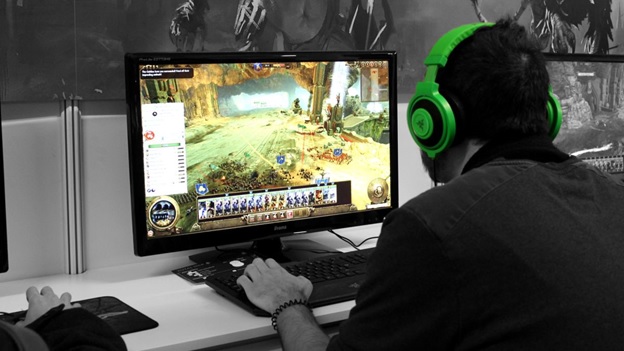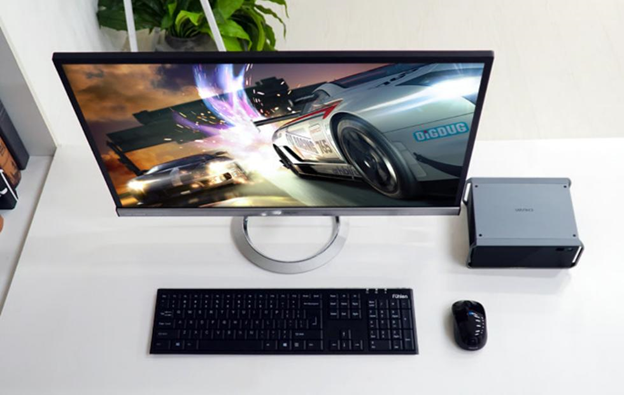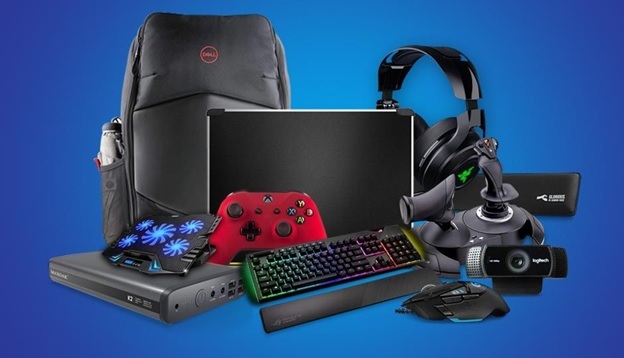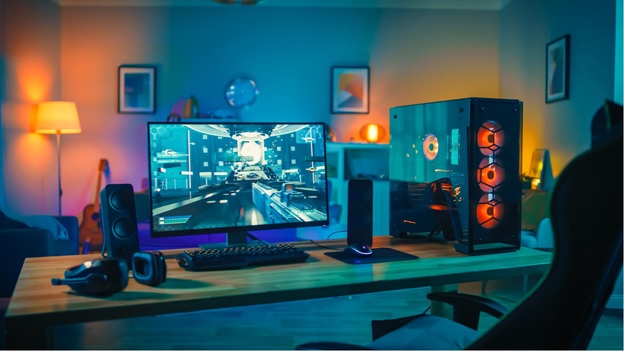There’s no denying that a gaming PC is more expensive than consoles, and we’re often met with the question, “is it worth the investment?” There are many factors to consider when deciding if you should buy a PC for your games. For some, they have an aversion to consoles because of their complexity or price.
Others may want to play games on multiple devices, such as laptops or tablets, while still others might just prefer playing on a computer. Whatever your reasoning for wanting one, here are a few things you need to know before buying your first $1000 gaming pc:
1.Get the best graphics card for your budget: Understand what graphics card you need for your system. It’s important to know what the different types of cards are and how they’re ranked by their relative power. The more powerful a graphics card is, the higher it will be on this list. Be mindful of whether or not you’ll be playing games on max settings (which requires a lot from your gaming PC), as well as if that video card can support multiple monitors at once – each one may require an additional cable.
2. Be sure to get enough RAM: You should have about 16GB of memory to run most high-end AAA titles smoothly without any hiccups; less than that could mean stuttering frames and crashes during gameplay which isn’t suitable for a good gaming experience.

3. Do you want it for school or work too? You might not have thought about this before, but some people use their gaming PC as a way to get things done on their computer, such as writing papers and doing research in addition to playing games. Some also prefer it for their personal work, so make sure to consider other work that you will do on this gaming PC.
For example, if it doesn’t come with all of your needs as discussed above or isn’t compatible with what you need from this device in other aspects such as school work and productivity.
4. Is there space in your budget? When deciding what kind of gaming PC you can afford, don’t forget to include all hardware costs like an operating system and any peripherals/accessories (series controller). The price will vary depending on the quality of each piece – even within models from the same company. Just because you are gaming on a computer does not mean you should buy the most expensive one that is available to save money.

5. So much power: Although desktops are usually preferable over laptops because they offer better performance, there’s always the chance that a higher-end gaming laptop will be able to give them a run for their money. But before making any hasty decisions, make sure it has all the features (USB ports) and ports (HDMI) that your heart desires.
6. No keyboard necessary: If you’re looking for something small enough to take with you when traveling but still capable of running quality games without lag – look no further than a gaming tablet. They’re smaller than laptops and still offer a lot of versatility when it comes to game options, but you want to make sure they have the ports that will suit your needs (HDMI)
7. The console question: If you love playing games on consoles because of their simplicity or price tag, then buying a PC might not be for you. That being said, there are advantages to owning both platforms in addition to your PC – namely access across multiple devices from laptop/desktop computer screens to tablets and mobile phones. This means if someone else wants to play while sitting next to them on the train, then all they need is an app! Of course, this also works with multiplayer gaming!

8. Consider buying a wireless keyboard and mouse to save on desk space: If you’re using your gaming pc on the go with a laptop, it might be worth investing in some wireless peripherals. This will save you from having to carry around a wired keyboard and mouse when traveling – which can lead to less room for other things in your bag!
9. Know how much space your PC will need: Depending on what type of motherboard you have (ATX or micro ATX), as well as whether or not you choose an all-in-one system, you’ll want to make sure that whichever model is chosen has enough space for all its parts. You also want to check there’s plenty of cooling, so if possible, try looking at cases that have fans built into them.
10. Get a computer chassis: Choose a computer chassis with enough space to hold the components you want to install. Some cases have more fans than others, so it can be good to research what’s available in the market.

11. Buy all those peripherals: If you’re looking at laptops or desktops that don’t come with keyboards and mice, make sure to purchase them separately! And of course, never forget about speakers – these might just become one of your favorite things when playing games because they’ll add another dimension to gameplay sound effects!
12. Watch out for compatibility issues: Ensure your power supply can provide enough wattage to run all of your components. This way, you won’t risk your components overheating and shutting down. You may also have to update the BIOS before installing certain hardware, so be sure to research what’s required for installation beforehand.
13. Think about the motherboard: Ensure that you have a motherboard that will fit inside the case and has enough room for all of your desired components. Whether you want TRX40 or TRX80, you’ll need to make sure the device will support it.
14. Check if you can upgrade anything in the future: It doesn’t hurt to know what’s possible before buying something that may need upgrading later on! Some people like knowing they have potential upgrades available, while others just want it all out of the box, so they don’t have any inconveniences down the line. Either way is perfectly fine when picking out your first gaming pc!
Conclusion:
Choosing a gaming PC can indeed seem challenging, but if you take the time to do your research and plan ahead, then it’s a lot easier. There are many things to consider when looking for your first gaming pc, so make sure that you know what these factors are before making any decisions on which one is right for you!

